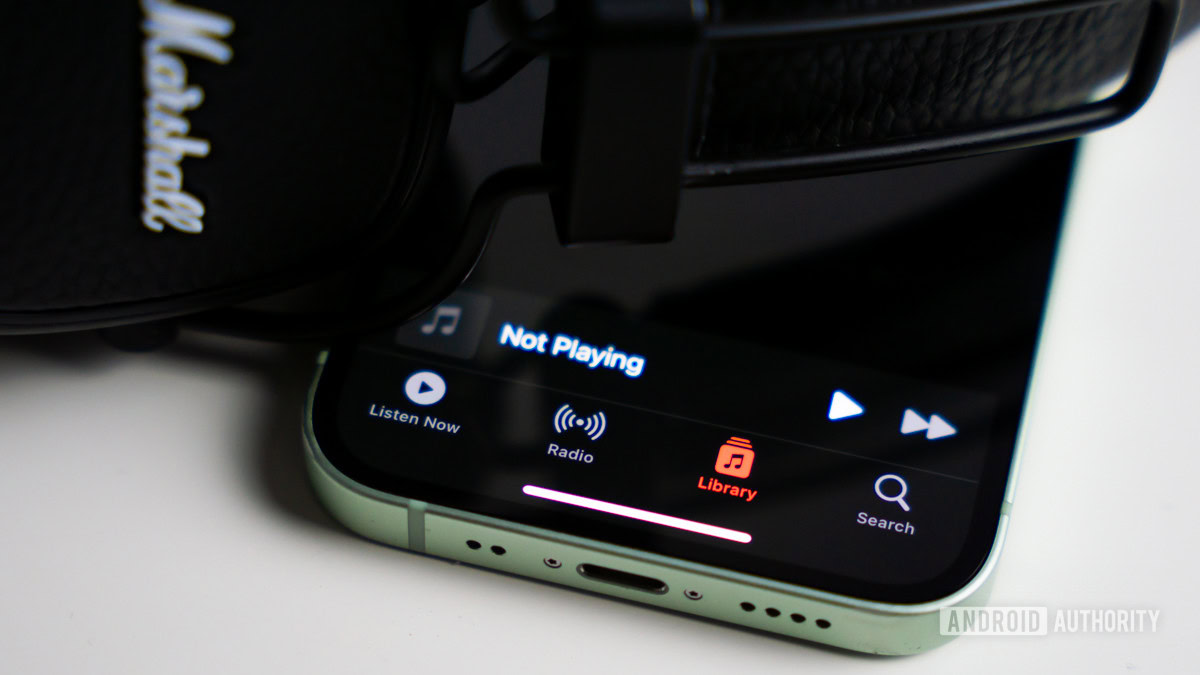Affiliate links on Android Authority may earn us a commission. Learn more.
What does the star mean on Apple Music?

If you are a subscriber to Apple Music, then you may have noticed something during browsing for music to play. Some tracks have a single star next to them. If you mouse over it, that star changes to a heart icon in case you want to “love” the track. But what does the star mean on Apple Music, and why is it there?
QUICK ANSWER
On Apple Music, the single star next to a song means that the track is extremely popular with many Apple Music subscribers. Apple, therefore, thinks you would like it too, and so the star is a recommendation of sorts to check out the song.
JUMP TO KEY SECTIONS
What does the star mean on Apple Music?
If you are an Apple Music subscriber or use the Music or iTunes app to listen to your downloaded music, you have a star system for each song. You can rank each song from one star to five stars, depending on how much you liked the song. Apple Music then sends this data to its algorithms which calculate what to recommend to you next based on your listening history and music tastes.
All of the star rating data is then aggregated, and Apple works out the most popular tracks ever across a wide spectrum of albums and genres. If you look at the top-selling albums of all time in your favourite genre or singer, you’re bound to find at least one star next to a song.
Two notable examples include Another Brick in the Wall from Pink Floyd’s album The Wall and the iconic track Bohemian Rhapsody by Queen
There has been online criticism of Apple’s decision to mark music that it thinks people should listen to. Some have suggested that Apple thinks people are not capable of making their own music choices. But if you look at the star icon, it is very faint to the point where you may very well miss it if you’re not looking closely enough.
Since this isn’t a feature that Apple is shoving into your face, it’s just a harmless feature that recommends good songs if you come across a new album for the first time.
How to rate songs on Apple Music
How to rate songs on Apple Music on desktop
If you want to start rating music on Apple Music on desktop, then it’s very easy to do.
- Go to the Songs in Apple Music.
- Left-click the row on top to open the menu, and click on Rating.
- You will see five star-shaped icons (you might have to mouse over the area for them to show up).
- Click the star that represents your rating preference. For example, if you think the song is worth four stars, click the fourth star to the right.
Your choice will be automatically saved, and you can change the rating later if needed. There are no permanent fixes.
Please note that you cannot rate songs on Apple Music playlists created by someone else.
How to rate songs on Apple Music on IOS
You can start rating songs in Apple Music, but there’s a little setup first. Here’s how:
- On your iPhone, head to Settings and then Music.
- There, find the option for Show Star Ratings and turn it on.
- Now, open the Music app. You can rate any song in your library by simply tapping and holding it.
- In the menu that appears, select Rate Song. Choose how many stars (1 to 5) you want to give the song.
- These ratings will be synced across all your devices using the same Apple ID.
This feature might not be available unless you already have some songs rated from a previously synced library.
FAQs
Star ratings are used to express your preference for a song’s quality, whereas Love buttons are primarily for adding songs to your library for easy access. It’s important to note that you can use Love buttons without assigning a star rating, and you can also assign a star rating without using Love buttons.
Yes, your ratings affect the music recommendations you get. Apple Music uses your ratings to understand your music taste and suggest new songs you might like, making your listening experience better.